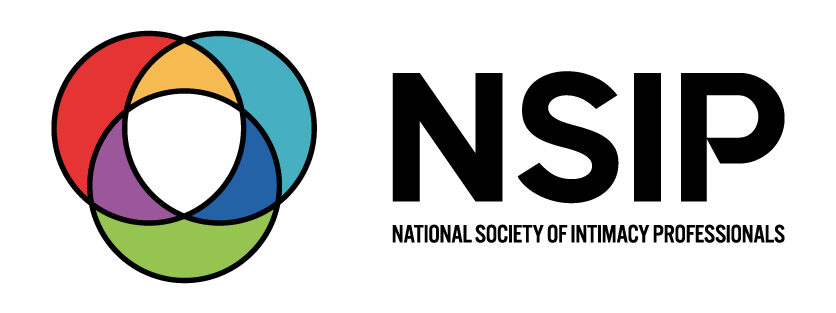Intimacy Coordination and Choreography
These standards are developed with input from 45 Intimacy Professionals working in the film, TV (recorded media) and theatre (live media) industries across Canada. The National Society of Intimacy Professionals (NSIP) Standards are split into Recorded Media (Intimacy Coordinators/Choreographers) and Live Media (Intimacy Directors).
To uphold a standard of excellence as a member of NSIP, an Intimacy Coordinator/Choreographer must demonstrate competence, confidence and working knowledge in:
Industry Knowledge:
- Understanding and experience of set culture;
- Collaboration and facilitation,
- Navigating documentation required to support production (e.g., scripts, one-liner, chronological breakdown, day out of days, call sheets);
- Various ACTRA/UBCP agreements, clauses and contract specifics related to intimacy coordination; and,
- Intersections between intimacy coordination and other relevant departments on a production.
Advocacy/Education:
- Cultural sensitivity and implicit bias understanding/training;
- Introductory Indigenous histories and issues;
- Anti-racism,anti-oppression training;
- Active bystander intervention training;
- Mental Health First Aid (certification recommended) and/or trauma and trauma support equivalents;
- Understanding and active allyship regarding gender identity and expression (i.e., pronouns, gender affirmation);
- Comprehensive sex and sexuality knowledge (i.e., anatomy, LGBTQ2S+, kink/BDSM);
- Communication skills, including conflict resolution, problem-solving, and compassionate (non-violent communication [NVC]) skills; and,
- Canadian federal and provincial laws related to harassment, assault and the age of consent.
Choreography:
- Curating ethical resources to support the creation of choreography;
- Scene study including: story analysis, script analysis and script breakdown and an understanding of actors’ processes and dynamics;
- Vocabulary as it relates to scenes and moments of intimacy, including de-sexualized choreographic language;
- Intersections between stunt coordination and intimacy coordination;
- Biomechanics, body movement and masking techniques; and,
- Proper understanding and application of the use of modesty garments and barriers.
Training and Qualification:
Membership can be attained upon completion of; certification from an Intimacy training program, mentorship training and/or based on a body of work. Training can be accessed in various forms, including workshops, online courses, and seminars.
Demonstrated forms of qualifications may include: a certificate or letter of completion from an organization or mentor; documentation (confirmation of enrollment, receipts, etc.) for workshops, online courses and seminars; and reference letters from other professionals in the industry, who can speak to your work and these standards.
See our requirements for membership for more information.
*This is a living document that is constantly changing as our society grows and evolves.
Standards for Intimacy Director
To uphold a standard of excellence as a member of NSIP, an Intimacy Director must demonstrate competence, confidence and working knowledge in:
Industry Knowledge:
- Understanding and experience of theatre workspace and culture;
- Collaboration and facilitation,
- Navigating documentation required to support production (e.g. scripts, rehearsal and show reports, schedules);
- Various Equity agreements, clauses and contract specifics related to intimacy direction; and,
- Intersections between intimacy direction and other relevant departments on a production.
Advocacy/Education:
- Cultural sensitivity and implicit bias understanding/training;
- Introductory Indigenous histories and issues;
- Anti-racism,anti-oppression training;
- Active bystander intervention training;
- Mental Health First Aid (certification recommended) and/or trauma and trauma support equivalents;
- Understanding and active allyship regarding gender identity and expression (i.e., pronouns, gender affirmation);
- Comprehensive sex and sexuality knowledge (i.e., anatomy, LGBTQ2S+, kink/BDSM);
- Communication skills, including conflict resolution, problem-solving, and compassionate (non-violent communication [NVC]) skills; and,
- Canadian federal and provincial laws related to harassment, assault and the age of consent.
Choreography:
- Curating ethical resources to support creation of choreography;
- Scene study including: story analysis, script analysis and script breakdown and an understanding of actors’ processes and dynamics;
- Vocabulary as it relates to scenes and moments of intimacy, including de-sexualized choreographic language;
- Intersections between fight direction and intimacy direction;
- Biomechanics, body movement and masking techniques; and,
- Proper understanding and application of the use of modesty garments and barriers.
Training and Qualification:
Membership can be attained upon completion of; certification from an Intimacy training program, mentorship training and/or based on a body of work. Training can be accessed in various forms, including workshops, online courses, and seminars.
Demonstrated forms of qualifications may include: a certificate or letter of completion from an organization or mentor; documentation (confirmation of enrollment, receipts, etc.) for workshops, online courses and seminars; and reference letters from other professionals in the industry, who can speak to your work and these standards.
See our requirements for membership for more information.
*This is a living document that is constantly changing as our society grows and evolves.
